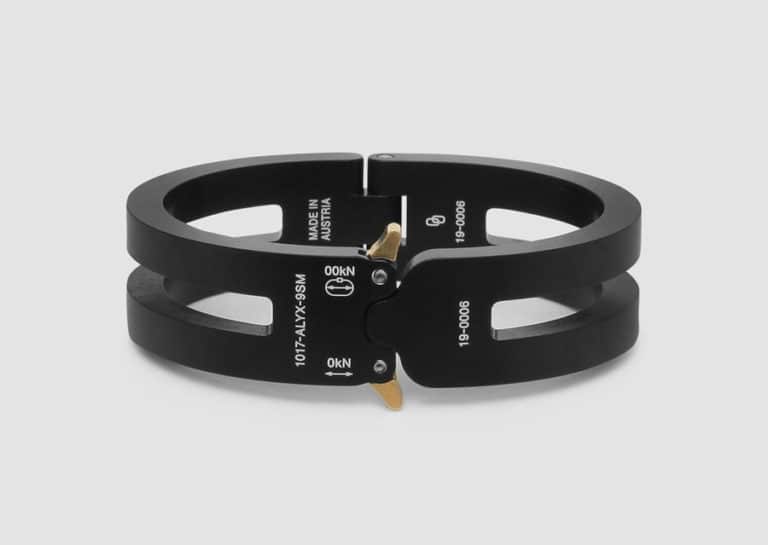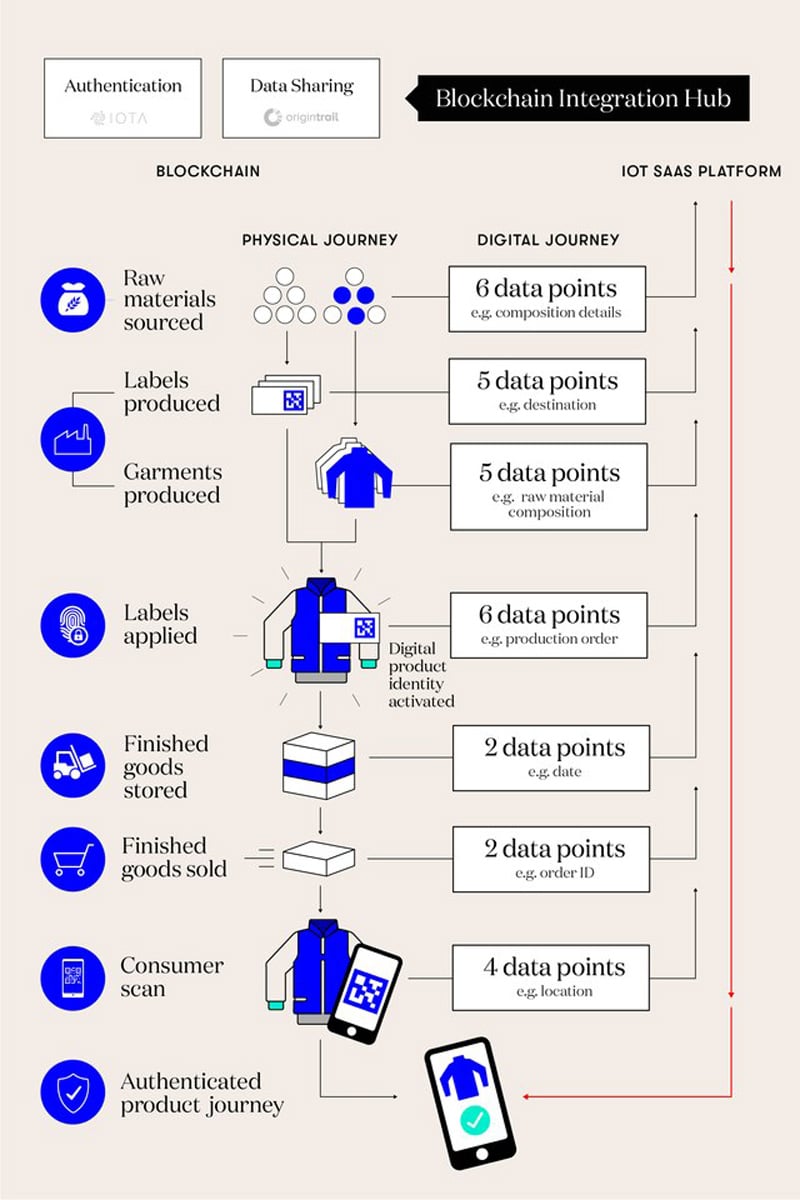Alyx: when blockchain technology meets fashion innovation

In 2015, designer and creative director Matthew Williams decided to channel his vision towards the creation of his own fashion brand 1017 Alyx 9SM. Following an already praised career during which he worked as a creative director with celebrities like Kanye West and other top fashion designers, since the founding of Alyx, Williams has added outstanding collaborations with brands like Moncler, Nike, and Dior Men to his impressive catalogue. Constantly pushing the boundaries of design, technology, and sustainability, Williams announced recently that Alyx was going to be the first brand to introduce blockchain technology to unveil the garment production in a way that is 100 percent accurate.
Sustainability has been part of the brand’s agenda from its start. Alyx uses recycled materials, as well as a leather dyeing process that consumes CO2, and has always been transparent about who—and under what working conditions—the collections have been produced by. Working closely with the worldwide leader in adhesive technologies Avery Dennison and the Internet of Things (IoT) software company Evrythng, Alyx has now implemented supply chain transparency into the brand by launching a blockchain-powered pilot programme on nine of its garments. Taking the brand’s history into consideration, it feels like a natural yet visionary step forward to add blockchain ledgers to its supply chain, making it visible and understandable to clients.
The nine products’ tags now feature a scannable QR code that reveals the entire supply chain history of the garment. According to Vogue Business, the data—which can be accessed by phone—include information about where the materials were sourced, where the product was manufactured, and its shipping movements. With 80 percent of its garments produced in Italy, the process of uploading and tracking the data of the garments is easily doable for Williams. In this transparency procedure, each supplier is in charge of entering the data into the chain.

Not only is this change innovative, but it could also prove the implementation of this feature to be a crucial addition to the brand’s history, and, if it works, to other fashion brands. “That’s what we want to continue to communicate, and that’s what brings value to our pieces,” Williams said. “It becomes a really great storytelling element”. Alyx belongs to that category of brands which promote durability rather than fast-fashion consumerism. In this regard, Williams and Dominique Guinard, founder and chief technology officer at Evrythng, believe that by knowing the digital identity of one garment, or its ‘journey’, customers might get more attached to the product. In an industry where overproduction and exploitation are toxic constants, sustainability and transparency are increasingly demanded by consumers. Alyx’s experimentation with blockchain technology stands as one of the finest examples of fashion innovation. By exposing its own brand’s data, Williams seeks to inspire a new approach in fashion, calling for other designers to follow suit.
The sustainable production process behind Alyx’s collections, which is now traceable thanks to the new technology, makes sure that its aesthetic is coherent with the message. The use of innovative technologies and the emphasis on transparency never overshadow the technical and aesthetic research that makes the brand’s design so on point. Some say that Alyx anticipates design trends, I’d argue that Alyx is doing way more than that. It is paving a path for a new way of thinking about fashion, technology, and most importantly, an industry future that is sustainable.




